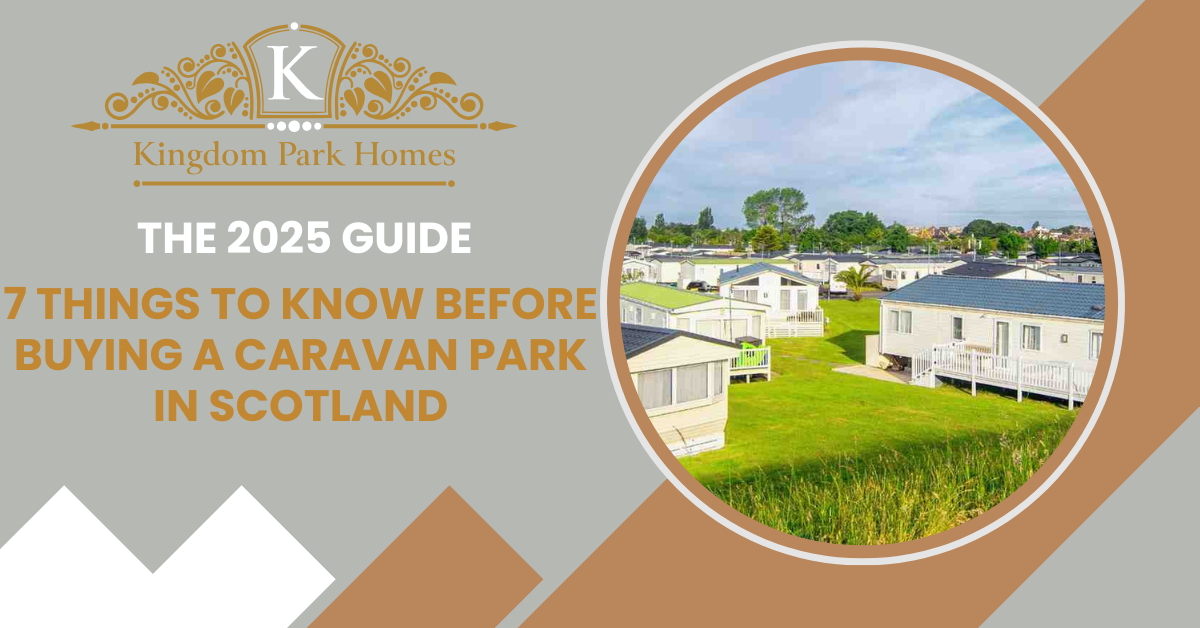Investing in a caravan park in Scotland offers an enticing blend of lifestyle and business opportunities. With the surge in domestic tourism and the allure of Scotland’s natural beauty, the market for caravan parks is thriving. However, purchasing a caravan park is a significant commitment that requires careful consideration. This comprehensive guide outlines seven crucial factors to consider before making such an investment.
1. Understanding the Scottish Caravan Park Market
Scotland’s caravan park industry has experienced notable growth, driven by increased domestic travel and the country’s scenic landscapes. Regions like the Highlands, Argyll, and the Scottish Borders are particularly popular among tourists. For instance, the Christies Parks estate in northeast Scotland, comprising three sites, was recently listed for over £9 million, highlighting the market’s potential.
When exploring Caravan Parks Scotland For Sale, it’s essential to assess the park’s location, amenities, and potential for growth. Properties near tourist attractions or with unique features tend to attract more visitors.
2. Financial Considerations and Investment Potential
Investing in a caravan park involves substantial financial planning. Prices vary widely based on location, size, and facilities. For example, a luxury holiday lodge complex in Dalmally is listed at £3.95 million.
Key financial aspects to evaluate include:
Initial Investment: Purchase price, legal fees, and any immediate renovation costs.
Operating Costs: Staff salaries, maintenance, utilities, and insurance.
Revenue Streams: Accommodation rentals, on-site facilities, and additional services.
Return on Investment (ROI): Projected income versus expenses over time.
Conducting thorough due diligence and consulting with financial advisors can help in making informed decisions.
3. Legal and Regulatory Compliance
Operating a caravan park in Scotland requires adherence to specific legal and regulatory standards. Key considerations include:
Licensing: Obtaining the appropriate site licenses from local authorities.
Planning Permissions: Ensuring any developments or changes comply with planning regulations.
Health and Safety: Meeting standards for fire safety, sanitation, and general welfare.
Environmental Regulations: Managing waste, water, and energy use responsibly.
Consulting with legal professionals familiar with Scottish property and business law is advisable to navigate these requirements effectively.
4. Assessing Location and Accessibility
The success of a caravan park heavily depends on its location. Factors to consider include:
Proximity to Attractions: Parks near popular tourist destinations or natural landmarks tend to attract more visitors.
Accessibility: Ease of access via major roads or public transport can influence guest numbers.
Local Amenities: The availability of shops, restaurants, and medical facilities enhances guest experience.
Scenic Value: Picturesque settings can be a significant draw for tourists seeking a tranquil retreat.
For instance, properties in the Loch Lomond area benefit from stunning landscapes and a steady influx of visitors.
5. Infrastructure and Facilities
Evaluating the existing infrastructure is crucial to determining the park’s operational efficiency and guest satisfaction. Key aspects include:
Accommodation Quality: Condition and variety of caravans or lodges.
Utilities: Reliable water, electricity, and waste management systems.
Recreational Facilities: Availability of amenities like swimming pools, playgrounds, or entertainment areas.
Maintenance: Ongoing upkeep of grounds and facilities to ensure safety and appeal.
Investing in upgrades or expansions can enhance the park’s attractiveness and revenue potential.
6. Market Trends and Customer Preferences
Understanding current market trends and customer preferences can inform strategic decisions. Notable trends include:
Eco-Friendly Practices: Growing demand for sustainable and environmentally conscious accommodations.
Glamping: Increased interest in luxury camping experiences combining comfort with nature.
Digital Presence: Importance of online booking systems and positive reviews on platforms like TripAdvisor.
Year-Round Operation: Offering amenities that attract visitors beyond the traditional holiday season.
Adapting to these trends can position the park competitively in the market.
7. Management and Staffing
Effective management is vital for the smooth operation of a caravan park. Considerations include:
Staffing Needs: Determining the number and roles of employees required for daily operations.
Training: Ensuring staff are well-trained in customer service, safety protocols, and maintenance tasks.
Operational Systems: Implementing efficient booking, billing, and management systems.
Customer Service: Fostering a welcoming environment to encourage repeat business and positive reviews.
Whether managing the park personally or hiring a management team, establishing clear operational procedures is essential.
Conclusion
Purchasing a caravan park in Scotland presents a promising opportunity for those seeking a blend of business and lifestyle. By carefully considering market dynamics, financial implications, legal requirements, and operational aspects, prospective buyers can make informed decisions. Exploring Caravan Parks Scotland For Sale with these factors in mind can lead to a rewarding investment in Scotland.
